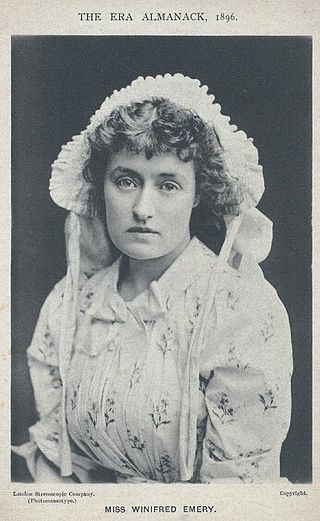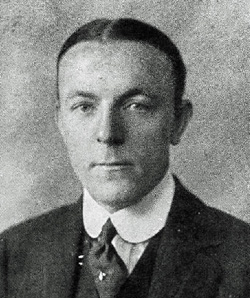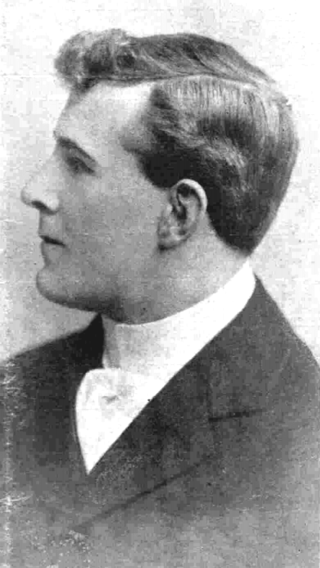Related Research Articles

Sir Michael Caine is an English actor. Known for his distinctive Cockney accent, he has appeared in more than 160 films over a career spanning seven decades and is considered a British film icon. He has received various awards including two Academy Awards, a BAFTA, three Golden Globe Awards, and a Screen Actors Guild Award. As of 2017, the films in which Caine has appeared have grossed over $7.8 billion worldwide. Caine is one of only five male actors to be nominated for an Academy Award for acting in five different decades. In 2000, he received a BAFTA Fellowship and was knighted by Queen Elizabeth II for his contribution to cinema.

David Garrick was an English actor, playwright, theatre manager and producer who influenced nearly all aspects of European theatrical practice throughout the 18th century, and was a pupil and friend of Samuel Johnson. He appeared in a number of amateur theatricals, and with his appearance in the title role of Shakespeare's Richard III, audiences and managers began to take notice.

Sir Thomas Henry Hall Caine, usually known as Hall Caine, was a British novelist, dramatist, short story writer, poet and critic of the late nineteenth and early twentieth century. Caine's popularity during his lifetime was unprecedented. He wrote fifteen novels on subjects of adultery, divorce, domestic violence, illegitimacy, infanticide, religious bigotry and women's rights, became an international literary celebrity, and sold a total of ten million books. Caine was the most highly paid novelist of his day. The Eternal City is the first novel to have sold over a million copies worldwide. In addition to his books, Caine is the author of more than a dozen plays and was one of the most commercially successful dramatists of his time; many were West End and Broadway productions. Caine adapted seven of his novels for the stage. He collaborated with leading actors and managers, including Wilson Barrett, Viola Allen, Herbert Beerbohm Tree, Louis Napoleon Parker, Mrs Patrick Campbell, George Alexander, and Arthur Collins. Most of Caine's novels were adapted into silent black and white films. A. E. Coleby's 1923 18,454 feet, nineteen-reel film The Prodigal Son became the longest commercially made British film. Alfred Hitchcock's 1929 film The Manxman, is Hitchcock's last silent film.
The Parable of the Prodigal Son is a parable of Jesus from the Bible.

The Theatre Royal, Drury Lane, commonly known as Drury Lane, is a West End theatre and Grade I listed building in Covent Garden, London, England. The building faces Catherine Street and backs onto Drury Lane. The building is the most recent in a line of four theatres which were built at the same location, the earliest of which dated back to 1663, making it the oldest theatre site in London still in use. According to the author Peter Thomson, for its first two centuries, Drury Lane could "reasonably have claimed to be London's leading theatre". For most of that time, it was one of a handful of patent theatres, granted monopoly rights to the production of "legitimate" drama in London.

Owen Hall was the principal pen name of the Irish-born theatre writer, racing correspondent, theatre critic and solicitor, James "Jimmy" Davis, when writing for the stage. After his successive careers in law and journalism, Hall wrote the librettos for a series of extraordinarily successful musical comedies in the 1890s and the first decade of the 1900s, including A Gaiety Girl, An Artist's Model, The Geisha, A Greek Slave and Florodora. Despite his achievements, Hall was constantly in financial distress because of his gambling and extravagant lifestyle; his pseudonym was a pun on "owing all".

Henry William George Lupino professionally Lupino Lane, was an English actor and theatre manager, and a member of the famous Lupino family, which eventually included his cousin, the screenwriter/director/actress Ida Lupino. Lane started out as a child performer, known as 'Little Nipper', and went on to appear in a wide range of theatrical, music hall and film performances. Increasingly celebrated for his silent comedy short subjects, he is best known in the United Kingdom for playing Bill Snibson in the play and film Me and My Girl, which popularized the song and dance routine "The Lambeth Walk".

Henry Hamilton was an English playwright, lyricist and actor. He is best remembered for his musical theatre libretti, including The Duchess of Dantzic (1903), The School Girl (1903), Véronique (1905) and The Little Michus (1907), often adapting foreign works for the British stage.

Frederick John D'Auban was an English dancer, choreographer and actor of the Victorian and Edwardian eras. Famous during his lifetime as the ballet-master at the Theatre Royal, Drury Lane, he is best remembered as the choreographer of many of the Gilbert and Sullivan operas.

Winifred Emery was an English actress and actor-manager of the late 19th and early 20th centuries. She was the wife of the actor Cyril Maude.

George Windsor Graves was an English comic actor. Although he could neither sing nor dance, he became a leading comedian in musical comedies, adapting the French and Viennese opéra-bouffe style of light comic relief into a broader comedy popular with English audiences of the period. His comic portrayals did much to ensure the West End success of Véronique (1904) The Little Michus, and The Merry Widow (1907).

Herbert Campbell, born Herbert Edward Story, was an English comedian and actor who appeared in music hall, Victorian burlesques and musical comedies during the Victorian era. He was famous for starring, for many years, in the Theatre Royal, Drury Lane's annual Christmas pantomimes, predominantly as a dame.
Frances "Fanny" Whiteside Brough was a Paris-born British stage actress who came from a literary and dramatic family. She is remembered especially for her many comedy roles performed over a four decade-long career.

The Bondman is an 1890 best-selling novel by Hall Caine set in the Isle of Man and Iceland. It was the first novel to be released by the newly established Heinemann publishing company. It was a phenomenal success and was later adapted into a successful play and two silent films.
The Prodigal Son is a 1923 British silent historical film directed by A. E. Coleby and starring Stewart Rome, Henry Victor and Edith Bishop. The film is an adaptation of Hall Caine's 1904 novel The Prodigal Son, set in Iceland and the French Riviera. It was noted as a long film, reported variously at three or over four hours. The film's original release length as 18,454 feet made it the longest commercially made British film. It was shown in two consecutive parts, the second part being entitled The Return of the Prodigal.

Harry Randall was an English comic actor in music halls and pantomime.

Johnny Danvers was an English actor and comedian and music hall performer who made a number of appearances in the annual pantomime at the Theatre Royal, Drury Lane in the late 19th and early 20th-centuries, usually with his nephew Dan Leno.

Agnes Fraser Elder Fraser-Smith was a Scottish actress and soprano, known as Agnes Fraser, who appeared in the later Savoy Operas and in Edwardian musical comedy. She married the Gilbert and Sullivan performer Walter Passmore, with whom she frequently appeared on stage.

William Edward Evans was an English actor, comedian and playwright. He was well-known as a performer in music halls and silent comedy films, and appeared in West End musical shows. As a writer his biggest success was the farce Tons of Money which opened in 1922 and ran for more than 700 performances.

Florence Isabella Brandon, known by her stage name Florence West, was an English actress, who created roles in new plays by Oscar Wilde and Bernard Shaw. She married the actor Lewis Waller and frequently appeared with him in the West End and on tour until her retirement in 1905.
References
- ↑ The Sketch: A Journal of Art and Actuality - Volume 51 - Page 242 1905 "Mr. Hall Caine's dramatisation of his own extraordinarily successful novel, “The Prodigal Son," changes all this. This year the Drury Lane drama stands for the romantic, almost the poetic, in life, and-that though the story is of the present ...
- ↑ "Heard in the Green-Room". The Sketch. 6 September 1905. p. 37.
- ↑ Barker, Clive; Trussler, Simon (1999). New Theatre Quarterly 57: Volume 15, Part 1. UK: Cambridge University Press. p. 28. ISBN 978-0-521-65601-6.
- ↑ Robertson, Patrick (1985). Movie Facts and Feats: A Guinness Record Book . New York: Sterling Pub Co Inc. p. 35. ISBN 978-0-85112-278-6.